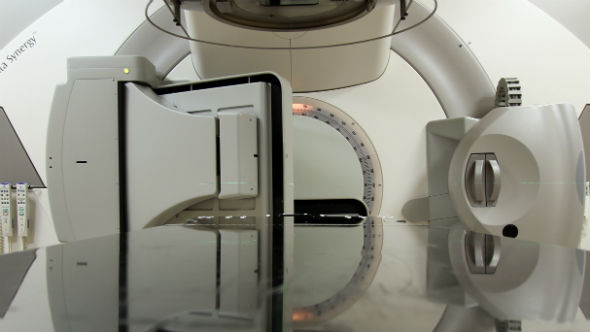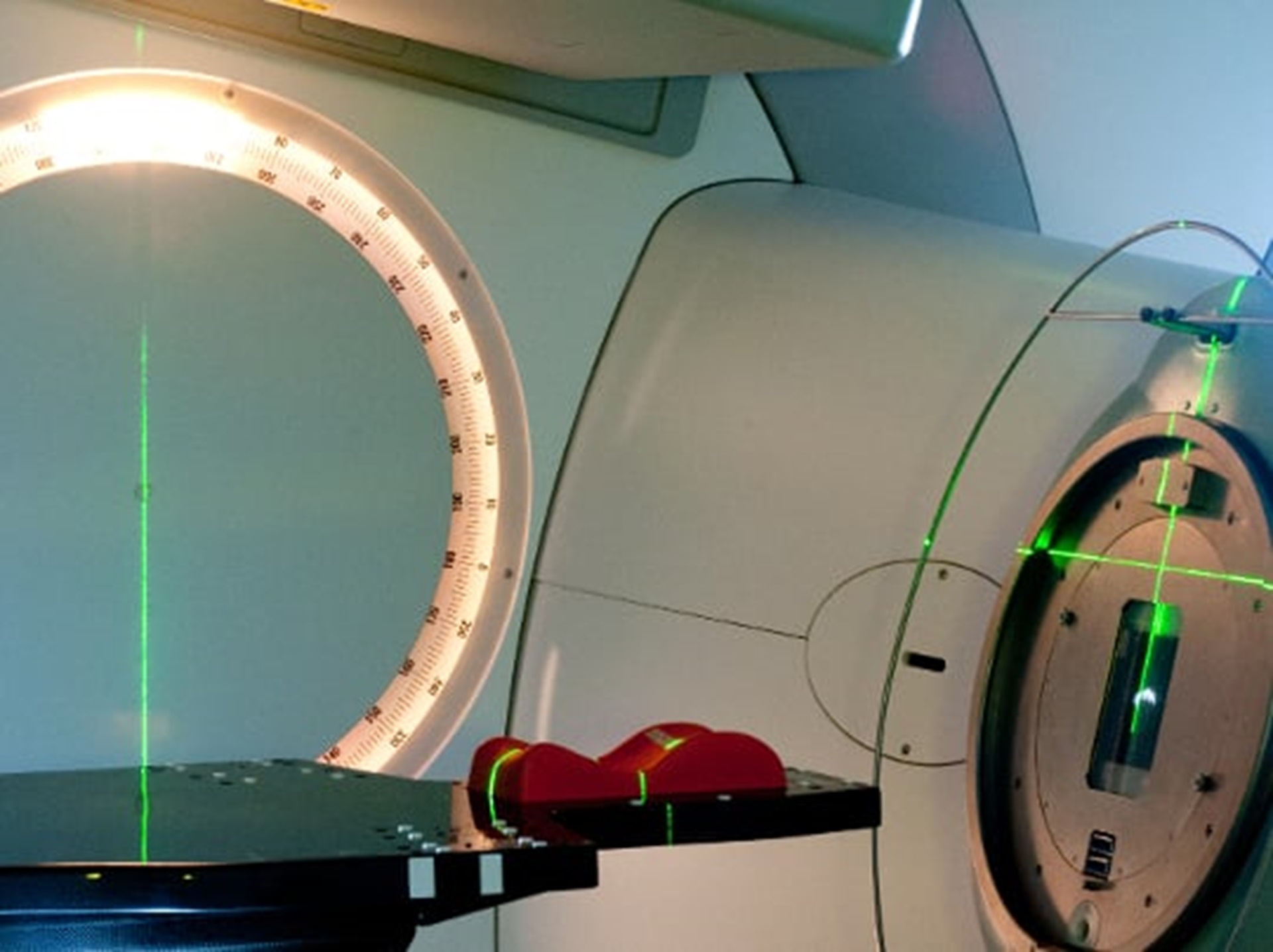
Combining a new targeted drug that blocks one of cancer’s escape routes could boost the effectiveness of combined chemo-radiotherapy for head and neck cancers and stop cells becoming resistant to treatment.
Researchers at The Institute of Cancer Research, London, and The Royal Marsden NHS Foundation Trust found that treating human tumour cells, grown in the laboratory and in mice, with the CHK1 inhibitor CCT24474 and paclitaxel chemotherapy made them more susceptible to radiotherapy.
The ‘triple therapy’ was more effective at killing head and neck cancer cells than paclitaxel and radiotherapy alone or in combination, and plans are underway to test the new combination in human clinical trials in future.
Radiotherapy kills cancer cells by damaging DNA and taxane chemotherapy can increase this effect by interfering with normal cell division. However, some cancer cells can avoid cell death by activating a protein called CHK1, which stalls cell division so that there is time for DNA damage to be repaired.
By using CHK1 inhibitors alongside standard chemo-radiotherapy treatment, one of cancer’s escape routes is cut off so the tumour is less likely to relapse.
Identifying patients who may benefit
The new research is published in the journal Molecular Cancer Therapeutics and funded by the Cancer Research UK, the National Institute for Health Research Biomedical Research Centre at The Royal Marsden and the ICR, the Oracle Cancer Trust and the Rosetrees Trust.
The researchers observed that cells with high levels of CHK1 were more likely to become resistant to radiotherapy than those with lower levels, so testing for CHK1 could help pick the best treatment strategy for patients.
Looking at clinical samples, high levels of CHK1 were seen in patients with Human Papilloma Virus (HPV) positive tumours — a common driver of head and neck cancers — who had relapsed after radiotherapy alone. These patients, in particular, may benefit from the triple therapy regimen.
The addition of a CHK1 inhibitor also meant a lower dose of paclitaxel chemotherapy could be used, which may mean there are fewer side-effects when this treatment combination is tested in patients.
CHK1 inhibitors are currently in phase I clinical trials at the ICR and The Royal Marsden for other cancers and have not yet been tested in combination with radiotherapy in humans.
Professor Kevin Harrington, Professor of Biological Cancer Therapies at the ICR, said: “Radiotherapy is the standard-of-care treatment for patients with many different types of cancer. However, tumours of the same size and stage can respond very differently to radiation and new approaches to overcoming radio-resistance are badly needed. Combinations of treatments are used routinely to treat infectious disease to combat anti-microbial resistance. So, it makes sense that we would employ the same strategy for cancer.
“Our research has shown that a triple combination of a CHK1 inhibitor, paclitaxel chemotherapy and radiotherapy holds great promise for treating head and neck cancers, but also for overcoming therapy resistance and hopefully preventing relapse. We are now planning to take this course of treatment into the clinic to trial in patients.”
